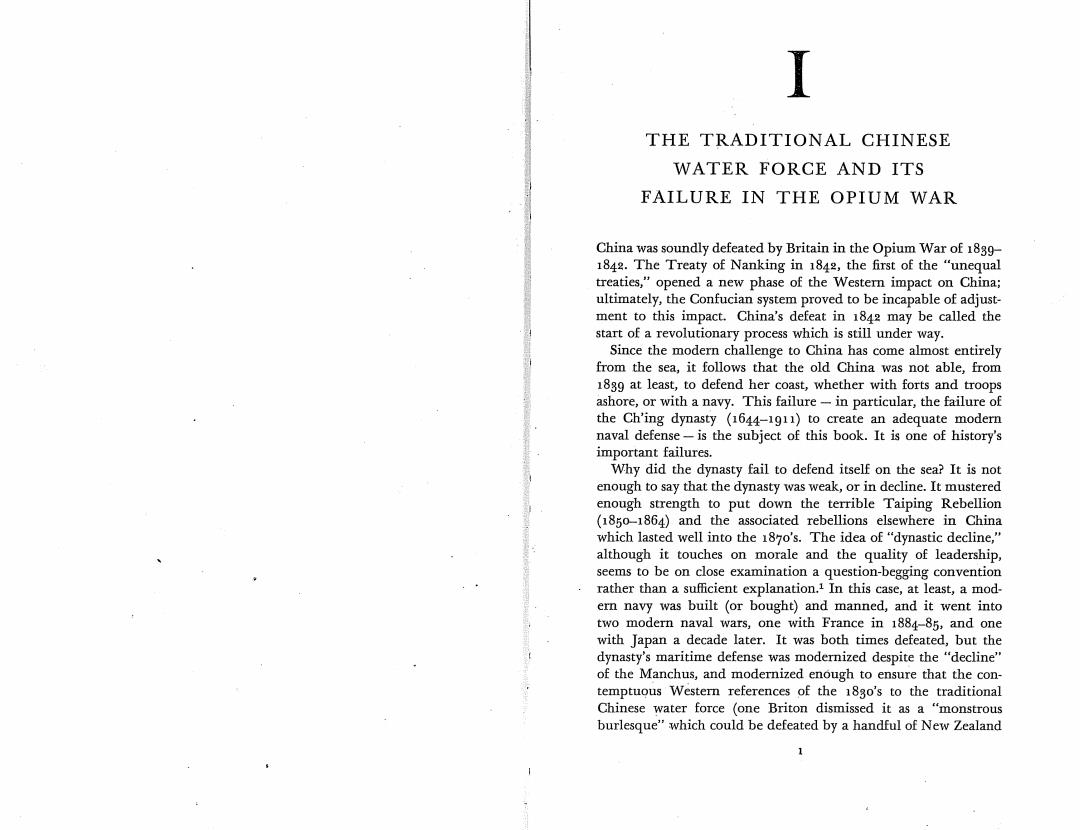正在加载图片...

THE TRADITIONAL CHINESE WATER FORCE AND ITS FAILURE IN THE OPIUM WAR China was soundly defeated by Britain in the Opium War of 1839- 1842.The Treaty of Nanking in 1842,the first of the "unequal treaties,"opened a new phase of the Western impact on China; ultimately,the Confucian system proved to be incapable of adjust- ment to this impact.China's defeat in 1842 may be called the start of a revolutionary process which is still under way. Since the modern challenge to China has come almost entirely from the sea,it follows that the old China was not able,from 1839 at least,to defend her coast,whether with forts and troops ashore,or with a navy.This failure-in particular,the failure of the Ch'ing dynasty (1644-1911)to create an adequate modern naval defense-is the subject of this book.It is one of history's important failures. Why did the dynasty fail to defend itself on the sea?It is not enough to say that the dynasty was weak,or in decline.It mustered enough strength to put down the terrible Taiping Rebellion (1850-1864)and the associated rebellions elsewhere in China which lasted well into the 187o's.The idea of"dynastic decline," although it touches on morale and the quality of leadership, seems to be on close examination a question-begging convention rather than a sufficient explanation.In this case,at least,a mod- ern navy was built (or bought)and manned,and it went into two modern naval wars,one with France in 1884-85,and one with Japan a decade later.It was both times defeated,but the dynasty's maritime defense was modernized despite the "decline" of the Manchus,and modernized enough to ensure that the con- temptuous Western references of the 18go's to the traditional Chinese water force (one Briton dismissed it as a "monstrous burlesque"which could be defeated by a handful of New Zealand 1